Harry Gregson-Williams On Bringing The World Of ‘Gladiator II’ To Life Through Its Score: “These are the sort of things that keep me up at night, in a good way.”
In this exclusive interview with Billboard Philippines, the renowned composer opens up about the process of working with Ridley Scott on one of 2024’s biggest blockbusters.
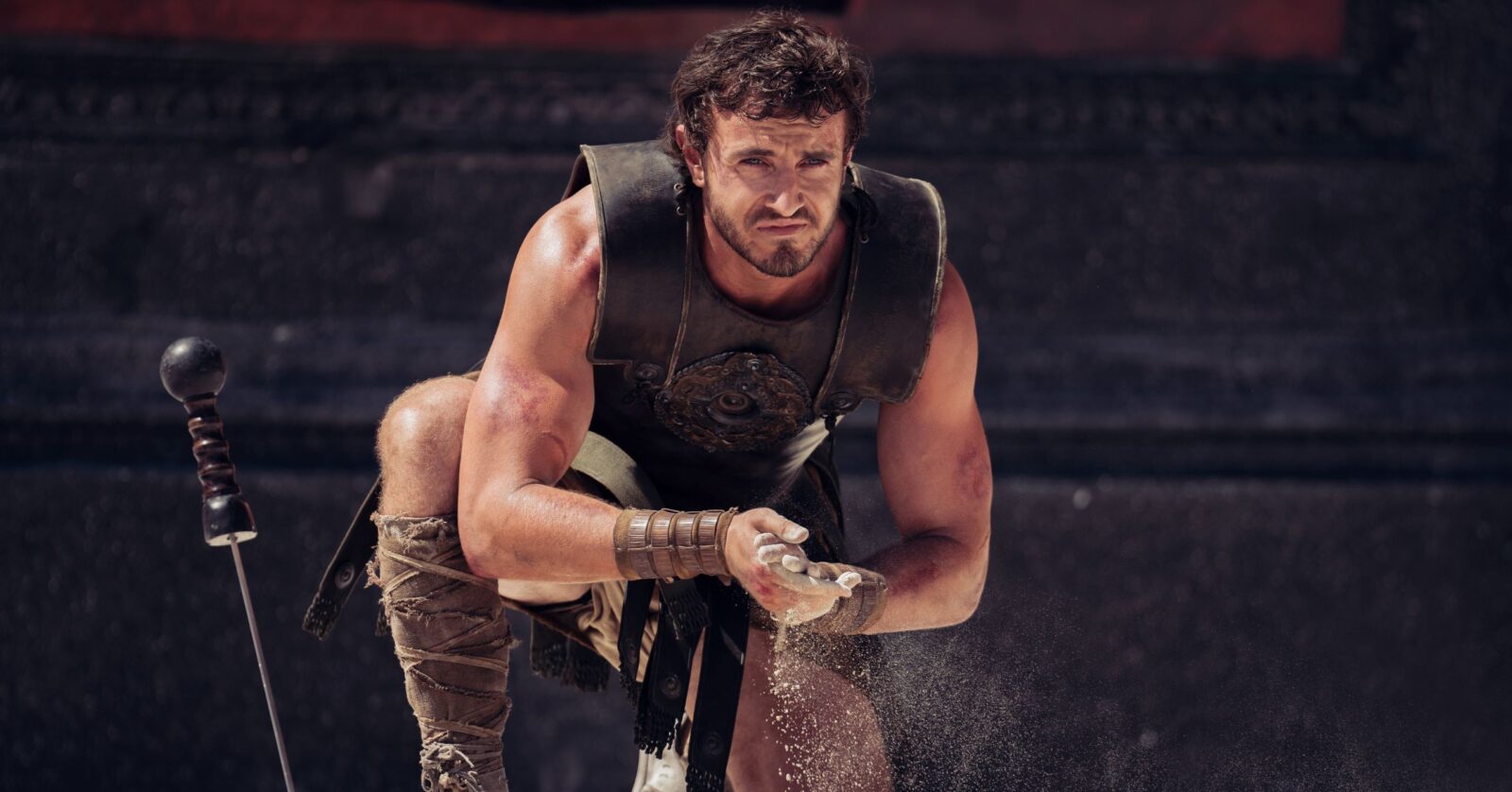
Courtesy of Paramount Pictures
Courtesy of Paramount Pictures
Crafting soundscapes is no easy feat — especially when tasked with bringing the world of ancient Rome back to life.
Yet for Harry Gregson-Williams, such a responsibility isn’t even the most complex of realms that he has managed to bring to life throughout his three decades on the scene.
Celebrated for his ability to compose immersive soundtracks that elevate cinematic storytelling, Gregson-Williams has brought to life countless fantasy realms and historical epochs through his work on several iconic films.
From the sweeping melodies of Disney’s The Chronicles of Narnia and the whimsy and humor of Dreamworks’ series of Shrek films, to the gritty, tension-filled scores of action-packed films like Kingdom of Heaven, Alien: Covenant, and The Martian, his music captures not only the essence of the visuals on screen, but also the intensity of emotions that drive the narrative forward.
While his discography exemplifies his remarkable talent for blending grandeur with nuance, the renowned composer now steps into his latest role as the composer for Ridley Scott’s highly anticipated blockbuster, Gladiator II.
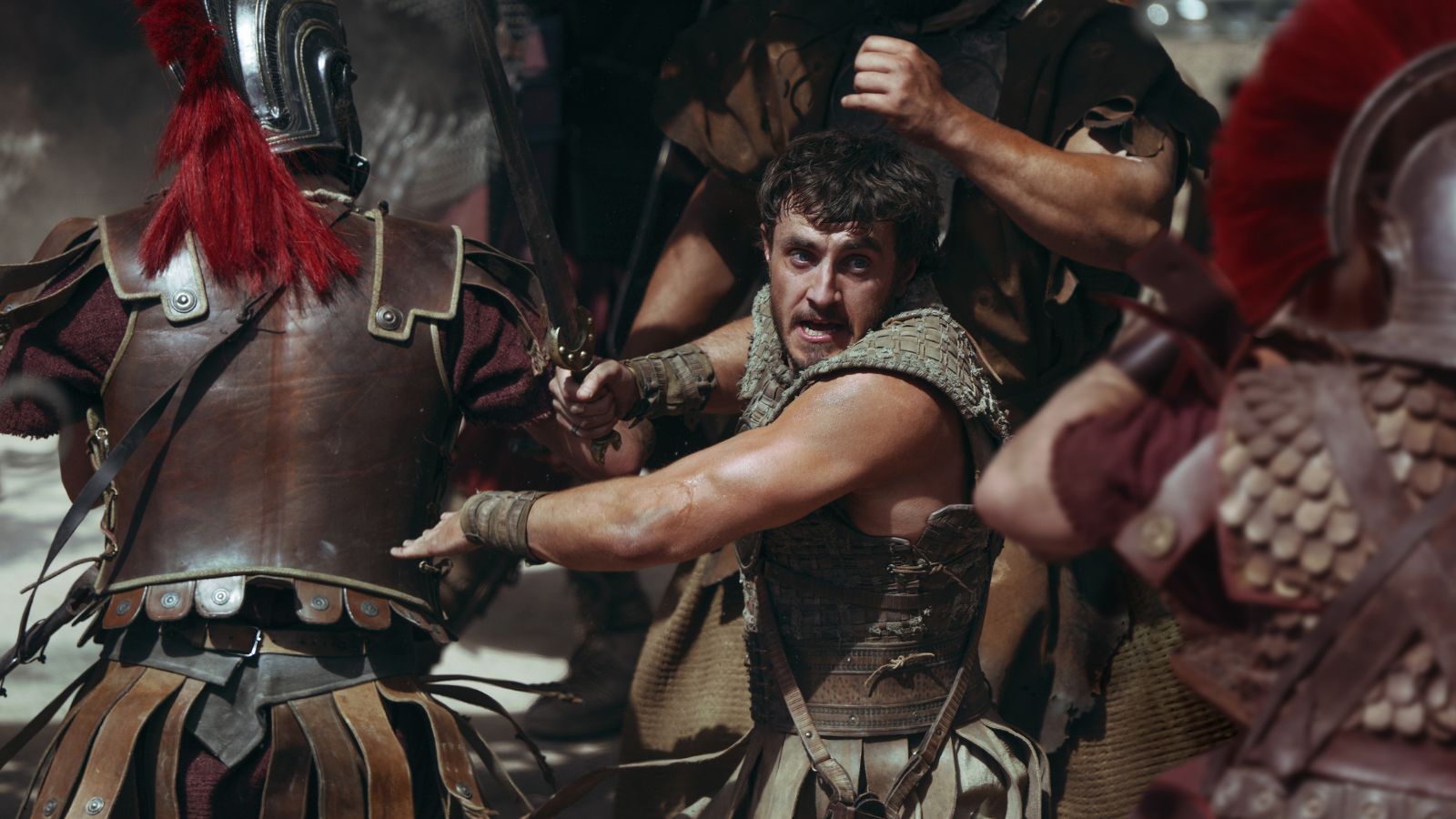
Courtesy of Paramount Pictures
Taking on the task of Gladiator II means following in the footsteps of Hans Zimmer, whose iconic score for the original Gladiator remains one of the most celebrated in film history. Yet having collaborated with director Ridley Scott on several other projects, Gregson-Williams possesses a profound understanding of the filmmaker’s storytelling style and a keen ability to underscore the emotional intensity of such narratives, to the point that he was pleasantly surprised to get the offer.
“I was absolutely, absolutely delighted [to get the call]. During the pandemic, me and Ridley did two movies together, back to back — The Last Duel and House Of Gucci — so I was thrilled to be asked to do this,” he tells Billboard Philippines. “I had a sneaking feeling he might, just because of my history with him, but more than that, I obviously have worked with, and am friends with, Hans [Zimmer].”
Having assisted Zimmer at the time the first Gladiator was produced, Gregson-Williams notes how there was a certain amount of ‘passing the baton on.’ So after hearing out Scott’s offer for him to compose its highly anticipated sequel, he mentions how he immediately reached out to Zimmer to break the news. “I said, ‘Ridley’s asked me to do this. I’m as keen as mustard, but how do you feel about that?’ to which Hans said, ‘Just go make me proud. Go kill it.’”
Despite the legacy of Zimmer’s first Gladiator score, Gregson-Williams notes how he didn’t necessarily feel any pressure about the task, nor did he even consult with his esteemed colleague about his approach to the score. “We didn’t have many conversations about it, no. Hans was off preparing for another tour, so he had other things on his mind. But from the very beginning, Ridley wanted me to have a good look at a rough cut of the film, and then we would have a talk about the approach.”
In finding his approach to the material, the composer notes how he and Scott were luckily on the same page with where how they wanted the music to accompany the massive scale of the film itself. “We were both very well aligned about what the best approach would be, which was to create a fresh score, but to still find a way of giving the audience a warm and fuzzy feeling occasionally,” he mentions. Whether it was using some of the original score’s instrumental elements or extracting some thematic material from it, he notes how the director ultimately gave him free rein to make his own mark on the story. “He knows that I delight in creating bygone worlds,” Gregson-Williams jokes.
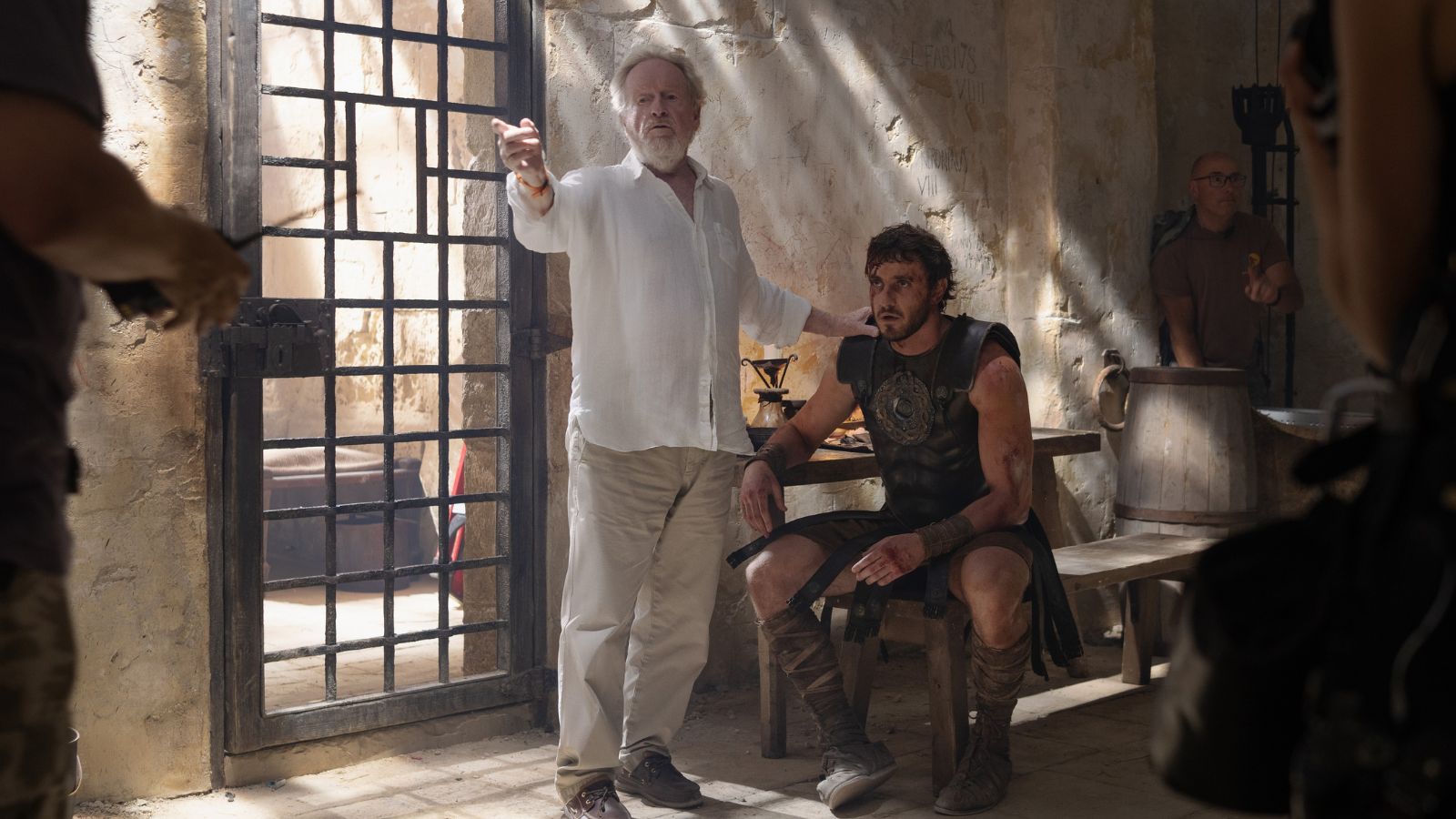
Courtesy of Paramount Pictures
Still, such an immense task required him to find his own designated starting point — which for him, was in crafting the theme for the film’s protagonist, Lucius (played by Irish actor Paul Mescal). “I set out to write a theme for Lucius, who turns out to be Maximus’ son. We don’t necessarily know that at the beginning of the movie, but we know we’re going to follow his emotional arc. So I felt his through line, the development of his personal voyage — both geographical and emotional.”
Through the closely intertwined nature of the film’s protagonist with the first film, it allowed Gregson-Williams to bridge the two soundtracks, which still posed quite a challenge for the composer. “I listened to Hans’ main theme from the first movie, and there’s a very distinctive falling seventh within the tune. I liked that. It’s the thing I found most memorable about it,” he states. “So I constructed a theme for Lucius that included a falling seventh, albeit not very predominantly — so when you hear it, you don’t think, ‘Oh, that’s the Gladiator theme.’”
Its subtle inclusion provided a way to integrate both compositions emotionally and sonically. “Rather than to start completely fresh, with something that had no DNA of the first movie, I thought, ‘If I can hide that falling seventh within my tune and not make it so prominent by the time we get closer to the end of the movie, this could really work,’” he explains — to which it achieves its intended effect on screen.
Upon asking how Mescal’s performance affected his work, Gregson-Williams mentions how it really informed him of how delicate the progression of the score had to be throughout the runtime of the film. “Paul’s performance did encourage a multifaceted thematic approach when it came to his character. Not only thematic but instrumental.”
“The first thematic material we hear around him is a high, reflective, ethnic flute — I call it the ‘DNA theme.’ It’s connected to Lucius and his heritage. It’s not a heroic tune at all, as in fact, it’s almost a calling for him to go to his destiny, and part of another element to him. But I would say Lucius’ heroic theme develops as his story evolves,” he adds.
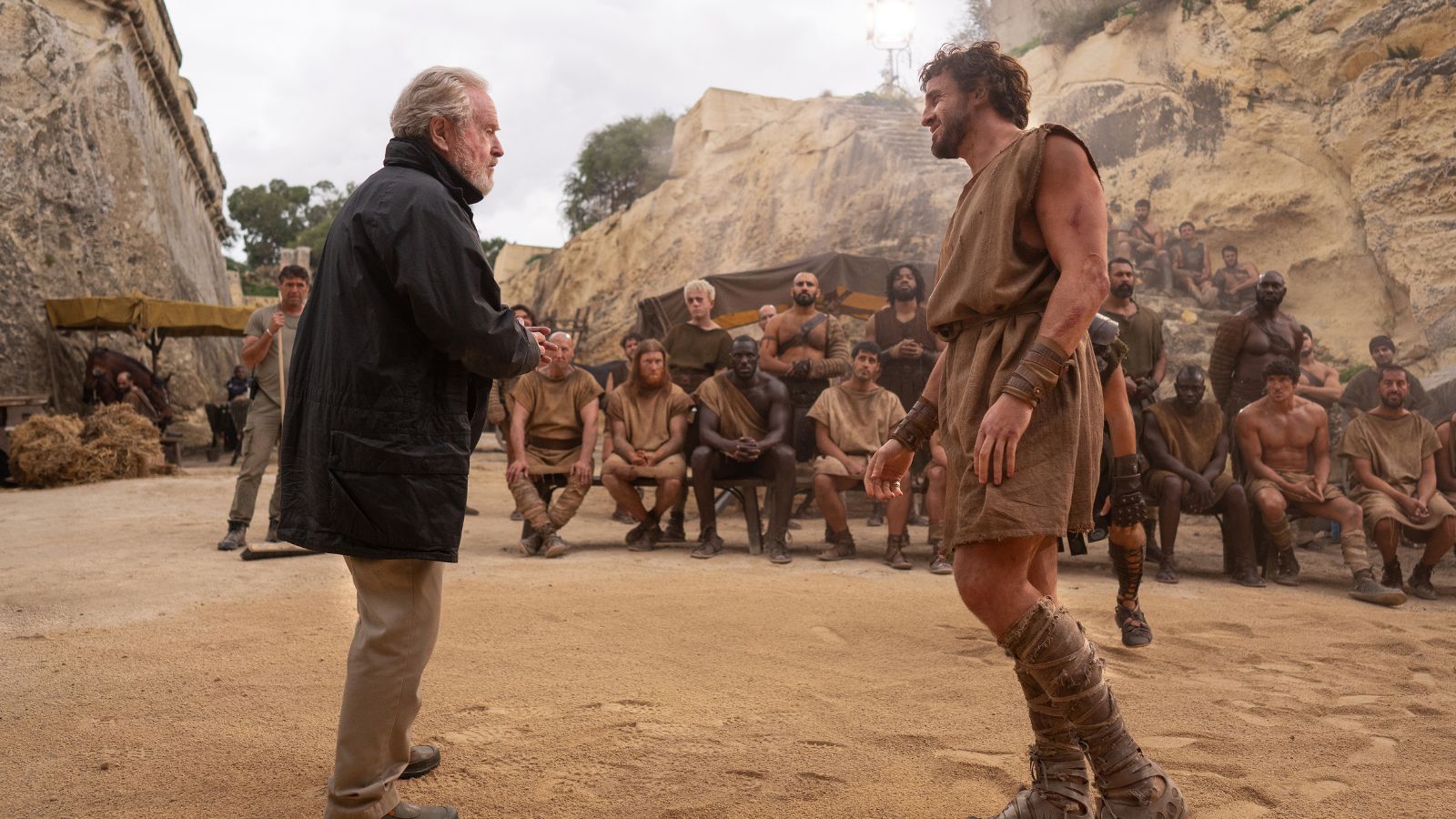
Courtesy of Paramount Pictures
Describing a sequence in the film that I wouldn’t want to spoil, the composer elaborates on how this moment had become one of his favorite scenes to score in his decades-long career. “[That scene] was one of my favorite scenes to score because that sequence is so symptomatic of a Ridley Scott film. You could freeze-frame any moment of that sequence and it would be a gorgeous picture, right? It’s a lament,” he states.
“So I said to Ridley, ‘Can we have no sound here, just music?’ [And then] he was like, ‘Go for it.’ So we had an Ethiopian vocal [added] in there and I put in deep echo with some delays and whatnot, and some very unnatural elements, like I had played a little piano or sonata, and I reversed the audio files. It resulted in lots of layers to it, just like Paul’s performance.” Reflecting upon his treatment of such a sequence, he notes: “These are the sort of things that keep me up at night, in a good way.”
As for the rest of the soundtrack, Gregson-Williams already has an easy pick for what stands for his favorite aspects of his compositions to the film. “There’s an element I haven’t mentioned yet, which is crucial. It’s not overwhelming, and it only happens twice in the movie, but Ridley and I had to have a conversation about Lisa Gerrard, whose contribution was really significant in the first movie (to the point that the Australian singer won a Golden Globe for her vocal collaboration with Zimmer). I said to him, ‘Ridley, I’m thinking of tracking Lisa down and having her sing in a couple of spots in the movie. I think it’d be a shame not to.’”
“Lisa is unique and brilliant. So I transcribed for myself the melody of her beautiful, very emotional theme from the first movie — called ‘Sorrow’ — then created a completely different accompaniment to it,” he elaborates. “Then I called her up and said, ‘What are you doing? Would you like to be part of this?’ And she said, ‘What do you mean, what am I doing? I’m about to go on tour with Hans Zimmer!’ Then she said, ‘I’d love to, but can I just check in with Hans, to see if he is good with this?’”
To his fortune, he was lucky enough to get both Zimmer’s and Gerrard’s approval to be a part of the soundtrack, even though there was some hesitation if it would feel too similar to what she’d accomplished on the first film. “I said, ‘No, there are a couple of spots where I want the audience to know and feel that it’s you, but there’s going to be a different accompaniment, which is from me. It won’t overwhelm the score I’ve done, but it should give the audience what they may desire.’ And, believe me, I picked a couple of really juicy spots for it,” Gregson-Williams mentions.
Prodding a little on what those juicy spots are, the composer gushes on about how he was able to write an overture to the film. “Just four or five days before I was due to get on a plane to come to Abbey Road and record the score with an orchestra, an overture suddenly appeared in the film — an opening credit sequence! It’s amazing. We start with Lisa’s voice, which then transitions into my score, which takes us through the credit sequence and into the first few shots of Lucius. It’s such an amazing start to the movie, because how often do you, as a composer, get the chance to literally write an overture?”
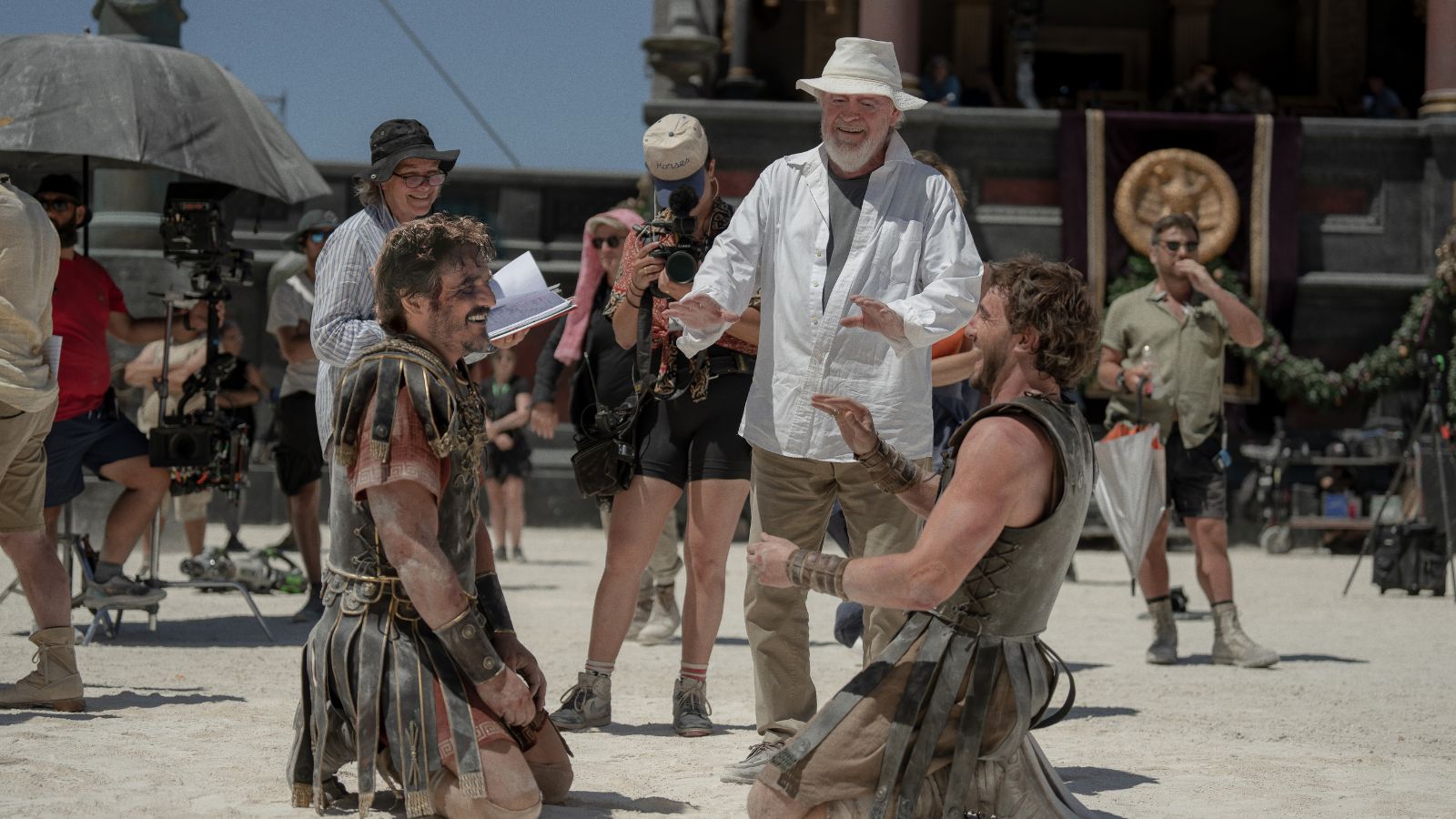
Courtesy of Paramount Pictures
With what audiences are bound to experience as Gladiator II makes its way to cinemas soon, Gregson-Williams’ journey in crafting the soundtrack for the sequel is a testament to his unique ability to honor legacy while charting bold new territory. Balancing the weight of Hans Zimmer’s iconic original score with his own creative instincts, he has delivered a composition that bridges past and present — seamlessly integrating the emotional depth and sonic DNA of the original film with fresh, dynamic themes.
By weaving thematic threads that mirror the protagonist Lucius’ journey and blending grandeur with subtlety, Gregson-Williams has created a soundtrack that not only complements Ridley Scott’s sweeping visuals, but also deepens the audience’s emotional engagement. In the hands of a composer so attuned to storytelling, the soundscape of ancient Rome has once again been brought vibrantly to life, promising an auditory journey that’s as immersive as the film itself.
Gladiator II releases nationwide in all Philippine cinemas this December 4, 2024. Book your tickets here.
Listen to Harry Gregson-Williams’ score of Gladiator II below: